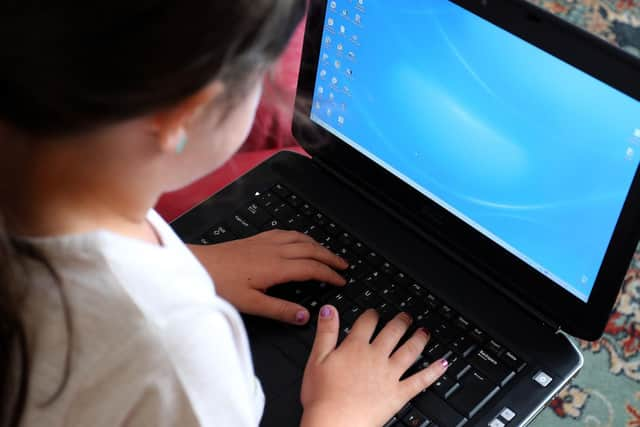Government faces legal action threats as pupils unable to access online lessons
and live on Freeview channel 276
The Good Law Project has accused ministers of “forcing” poorer children and black, Asian and minority ethnic (BAME) pupils to attend school at the height of the pandemic due to a shortage of digital devices.
Students in schools and colleges in England – except children of key workers and vulnerable pupils – have been told to learn remotely until mid-February due to tighter restrictions.
Advertisement
Hide AdAdvertisement
Hide AdEducation Secretary Gavin Williamson confirmed to MPs on Wednesday that children who do not have access to technology are seen as vulnerable and can attend school in-person during the lockdown.


Government guidance says vulnerable children may include “pupils who may have difficulty engaging with remote education at home” due to a lack of devices or quiet space to study.
But the Good Law Project, a legal campaign group which has previously brought cases against Uber, says “parents should not have to choose between the education of their child and their family’s health”.
Government guidance says vulnerable children should be strongly encouraged to attend school during the lockdown, but parents who choose to keep children out of class will not be penalised.
Advertisement
Hide AdAdvertisement
Hide AdIn response to concerns that many pupils also lack a suitable device in order to study remotely, the Department for Education (DfE) has said it will deliver 100,000 laptops to students this week, with 50,000 sent to schools for distribution on Monday alone.
It is part of a scheme to distribute one million devices to students by the end of the academic year, which the DfE said had already seen 560,000 sent out by the end of 2020.
According to estimates from Ofcom, between 1.14 million and 1.78 million children in the UK (9%) do not have home access to a laptop, desktop or tablet, and that more than 880,000 children live in a household with only a mobile internet connection.
Jolyon Maugham QC, director of the Good Law Project, said: “We all know that health outcomes for working class and BAME families are especially poor.
Advertisement
Hide AdAdvertisement
Hide Ad“Forcing children of those families to go into school at the height of a pandemic because Government can’t or won’t provide devices for them looks suspiciously like sacrificing their health to protect its reputation.”
The campaigners issued a pre-action letter – the step before formal proceedings begin – to Mr Williamson on Thursday. The Government has seven days to respond setting out a timeline for action.
It is thanks to our loyal readers that we can continue to provide the trusted news, analysis and insight that matters to you. For unlimited access to our unrivalled local reporting, you can take out a subscription here and help support the work of our dedicated team of reporters.